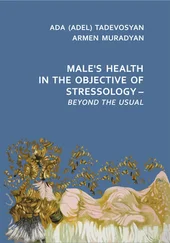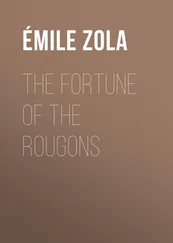“Aren’t you coming?”
Inside, through the broad windows of the front rooms of the Dalles, a few observers were watching the scene, intrigued. It’s all too hurtful , Paul thought, imagining what people would say after they left. Within an instant he was at Ann’s side, closing the door behind him.
“What’s with this car?”
“It’s mine. An old heap.”
“Where did you get it?”
Ann turned her head towards him, without losing control of the wheel. She headed in the direction of Piaţa Romana along the boulevard, which was nearly deserted on that grim November Sunday morning.
“Is that your only question? It’s the first one you’ve asked me, Paul.”
“And the last. I have nothing to ask you.”
Ann braked abruptly. The machine came to a rough stop, skating over the damp paving stones. The right mudguard slammed into the edge of the sidewalk. Ann, crestfallen, lifted her hands from the steering wheel. She stared straight ahead through the windshield, where the raindrops were sliding into hurried little streams. For a few minutes nothing was audible between them but the rhythmic sound of the windshield wiper on the glass. At last Ann lifted her eyes towards Paul, with the return of that decisive expression she assumed in serious moments.
“Maybe I made a mistake in phoning you, Paul. Maybe everything’s really finished between us. But since you came, since you’re here, I’d like to ask you to stay and to be quiet. I want to know you’re next to me. Tomorrow, if you want, an hour from now, if you want, we can go our separate ways. But for the moment, be quiet…”
She set off again. A cold, damp wind came shivering in through the open window on the driver’s side, hurling sparse raindrops into Ann’s face; she let them trickle down her cheeks and forehead without wiping them away, without seeming to feel them. Her hands clenched the steering wheel with the exaggerated tension of a long drive. The needles of the gauges on the dashboard oscillated with restless nervousness. The speedometer slid across the dial at between 80 and 90 kilometres an hour. On the right and the left, the bare linden trees that lined the road cast out a smokey mist. Farther along, beyond Băneasa Airport, there was an odour of dishevelled fields, of sodden grass, of earth tilled right down to the roots. The rain was falling more softly here, less rushed, calmer and more patient than in the city. The noise of the engine didn’t completely block out its thin rustling sound, like the approaching voice of the forest.
They left the sleeping airport, with its shuttered hangars, the radio station, the Otopeni forest, the road to Snagov, far behind them. The gleaming road unfolded before them through the open countryside. Whitish haze floated low over the black earth like fallen cloud making a futile attempt to raise itself… On the horizon, the greyness of the November day descended into a smokey, opaque whiteness.
Paul turned his head towards Ann. He had forgotten that she was next to him. This whole drive through the rain had the savour of awaking from a troubled sleep.
Ann bit her lower lip with a strained gesture that Paul didn’t recognize. It’s a recent gesture , he thought, a driving gesture . Her cheek betrayed no tremor: her eyes, slightly dilated with attentiveness, her forehead, tilted forward, lent a feeling of intensity and yet also of absence to her pale face. Only now had he noticed that she didn’t have her overcoat; she was bareheaded, with an open collar, exactly as she had left the exhibition, in a tailored brown suit ( Since when does she wear brown? ) with a gauzy scarf, wet from the rain, fluttering over her shoulders.
“I’d say it’s time for us to go back, Ann.”
She reduced their speed, uncertain at first, and then she stopped. She laid her forehead against the steering wheel and stayed that way, with her arms drooping, her hair ruffled by the cold wind, which continued to blow with ebbing force now that the car was parked. Paul straightened her up with difficulty, taking her head in his hands to draw her towards him: Ann’s half-closed eyes had a dull look, her lips were blue, her hands cold.
“What’s the matter with you? Are you cold? Are you feeling bad?”
“No,” she whispered. “I’d like to cry.”
“That’s good — cry,” he encouraged her, and he pulled her closer, sheltering her against his chest and covering her with his right arm as though he were wrapping a shawl around her shoulders. “Cry if you want. Go ahead — cry.”
In the small white car, parked alone on the road in the open countryside, Ann shook with childish, hiccuping tears.
In fact, nothing had changed, and Ann’s return was not a return. A caprice, a moment’s folly, maybe even more trivial than that… “She fled on the morning of her opening, like the bride on the wedding night,” the painters would joke among themselves. The truth was that she had left behind her a room full of guests and that her sudden departure gave rise to endless fascinated comments. Two days later, in a society column, it was said that Ann’s absence from her own opening was a delightful whim of the sort that an artist confident of the public’s affection can allow herself, with the result , the columnist added maliciously, that the majority of the works exhibited sold on the spot .
Everything that Ann did now, Paul observed, was destined to become the subject of publicity. And it doesn’t even worry her , he thought with a shake of his head. He had the hideous suspicion that her departure from the opening had been prepared in advance to intrigue the public and arouse curiosity in order to bring an “original note” to the all-too-banal tradition of the opening of an exhibition. Having rediscovered her for an instant, he was losing her again to a thicket of secrets and mysteries that she rushed through with an offhand gesture: “Forget it, I’ll explain.”
She was so distant, so strange had she become to him during their months of separation, that the paintings in her new show looked excessively good to him. Even if it hadn’t been for those four or five portraits, and sketches of portraits, of Dănulescu, ostentatiously exhibited, as if she wished to forestall or confront all that was being said about their liaison (and Paul had been annoyed above all by the title of those portraits in the exhibition catalogue: Portrait of the Architect D. , an initial which, rather than being a sign of discretion, seemed like one of intimacy) — even if it hadn’t been for those portraits, everything in Ann’s painting was unknown to him now; it all breathed memories, events, emotions experienced in his absence, far away from him. Most of the landscapes were of Sainte-Maxime, a Belgian fishing village where Ann had loaded her palette with the greys and blues of a cloudy sea. How long she had been in Sainte-Maxime, with whom, what she had been doing there, were questions she invariably deflected by telling him: “Forget it, someday I’ll tell you the whole story.” A day that had become more difficult to pin down the less he saw of her, always in a hurry, always in passing, particularly now that she had this blue car — bought? received as a gift? even she didn’t seem to know for sure — with which she ran innumerable errands, all of them urgent and all of them without explanation. For Paul it was a fresh source of pain to run across that small automobile, which he recognized from a distance by its colour — a light navy blue — heading along the streets only to disappear around a corner or beyond a crossroads — towards what unknown destinations? towards which clandestine encounters?
He happened to come across it with the doors closed and the headlights out, in obscure neighbourhoods, on the corner of an unfamiliar street, parked there who knew how long ago. He would approach it and look in the windows to see that Ann had left her gloves, or a book, or a package. Leaning over with his face against the windowpane, he would gaze for a long time at those forgotten objects. Sometimes they were left next to the car’s front grille. Maybe she’s coming back . She never came. He waited for hours on end, and still she didn’t come.
Читать дальше












